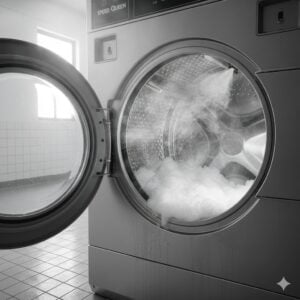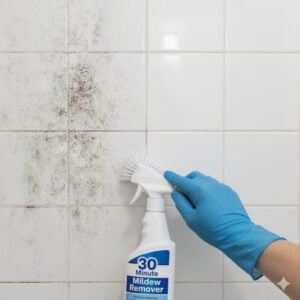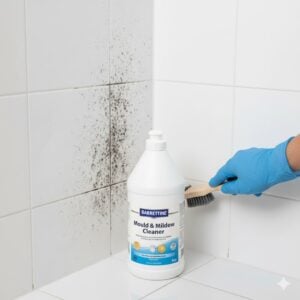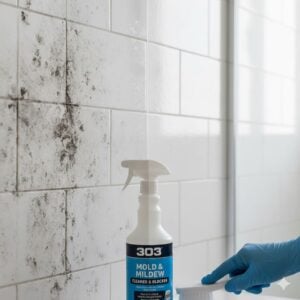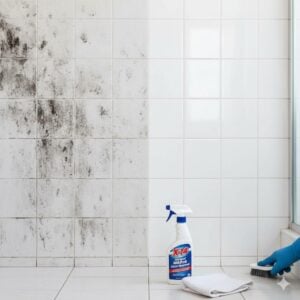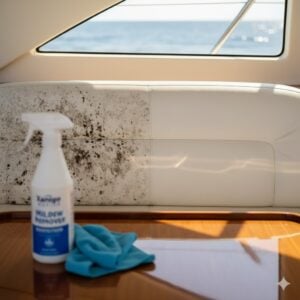Mold is more than just an eyesore. In the UAE’s humid climate, it can compromise your air quality, damage your home, and trigger health problems if not treated quickly. That’s where mold chemicals come in—powerful solutions designed to kill mold spores, disinfect contaminated surfaces, and prevent regrowth. But not all mold chemicals are created equal, and using the wrong one can make the problem worse.
In this guide, we break down what mold chemicals actually do, the types you’ll find in the UAE, how to use them safely, and why professional-grade solutions are often the better long-term fix. If you want to win the fight against mold, this is everything you need to know before reaching for that spray bottle.
Table of Contents
Toggle1. What Are Mold Chemicals and How Do They Work?
Mold chemicals, often called biocides or fungicides, are chemical agents formulated to kill or inhibit the growth of mold and mildew. They work by attacking mold spores at a cellular level, breaking down their structure so they can’t reproduce. Some chemicals also have residual effects, creating a protective barrier on surfaces that helps prevent mold from coming back.
There are three main categories of mold chemicals:
- Disinfectants: Kill mold on contact. Examples include hydrogen peroxide, sodium hypochlorite (bleach), and quaternary ammonium compounds.
- Encapsulants: Seal mold into surfaces and prevent spores from releasing into the air. Often used on drywall or porous materials after treatment.
- Preventatives: Applied after cleaning to protect surfaces from future growth. These often contain antimicrobial ingredients that inhibit mold regrowth for weeks or months.
Each type has its own role in a mold remediation plan. A true mold removal process often uses more than one chemical in sequence to clean, disinfect, and protect.
2. Common Mold Chemicals Used in UAE Homes
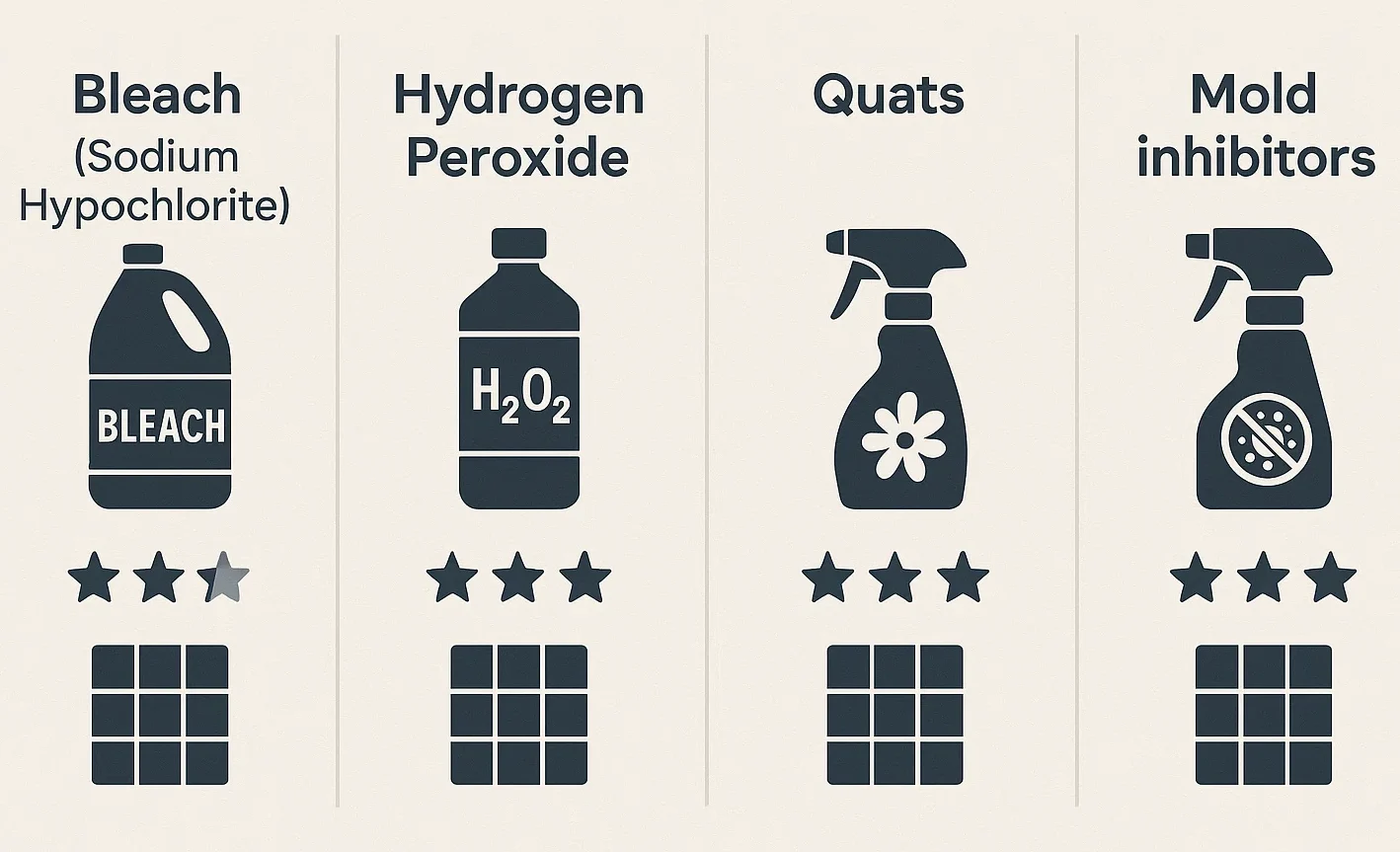
Here in the UAE, due to the region’s consistent humidity and AC-driven environments, homeowners and property managers often turn to stronger mold control options. Some of the most commonly used chemicals include:
- Sodium Hypochlorite (Bleach): Cheap and widely available, bleach can kill surface mold on non-porous materials like tiles and glass. However, it’s ineffective on porous materials like drywall, and its fumes can be irritating in closed indoor spaces.
- Hydrogen Peroxide (3–12%): A safer alternative to bleach, it breaks down into oxygen and water, making it environmentally friendly. It can penetrate porous materials better and is effective against bacteria and mold.
- Quaternary Ammonium Compounds (Quats): Common in professional disinfectants, “quats” are effective against a wide range of microbes, including mold. They often come in concentrated form and need to be diluted before use.
- Commercial Mold Inhibitors: Products like Concrobium Mold Control or Fiberlock Shockwave (if imported) are used by professionals for long-lasting protection and structural treatment.
Each chemical has pros and cons. For example, bleach is fast but doesn’t prevent regrowth, while quats may require protective gear to handle safely. Choosing the right product depends on the severity of the mold, the surface affected, and whether it’s a DIY project or professional job.
3. Safety Considerations When Using Mold Chemicals
Mold chemicals can be highly effective—but they can also be dangerous if used incorrectly. Whether you are using a store-bought cleaner or handling industrial-grade solutions, here are key safety tips to keep in mind:
- Ventilate the area: Always keep windows open and exhaust fans running when applying chemicals indoors.
- Wear protective gear: Gloves, goggles, and a proper face mask are essential when working with concentrated mold killers.
- Never mix chemicals: Combining bleach and ammonia, for example, releases toxic gases that can be fatal in enclosed spaces.
- Test on small areas: Some chemicals may damage paint, upholstery, or delicate materials. Always spot-test first.
- Follow dwell times: Many mold chemicals need to sit on the surface for several minutes to be fully effective. Rinsing too soon can reduce their power.
If you’re unsure whether your home is safe to treat on your own, we always recommend scheduling a professional inspection. Bio-On’s certified team can assess the problem and apply chemicals safely with industrial-grade tools and PPE.
4. Do Mold Chemicals Remove Mold Permanently?
Here’s the truth: mold chemicals can kill mold, but they don’t always remove the root cause.
In many UAE homes, the real issue isn’t the mold itself—it’s the conditions that allow it to grow. These include:
- High humidity caused by closed windows and frequent AC use
- Water leaks from pipes, ceilings, or appliances
- Poor ventilation in bathrooms and kitchens
- Absorbent materials like carpet and drywall holding moisture
So while mold chemicals are a vital part of treatment, they’re not a permanent fix unless paired with long-term moisture control. That’s why at Bio-On, we often recommend combining chemical treatment with dehumidifier use, HVAC cleaning, or even structural repairs when needed.
After chemical treatment, it’s also important to repaint or seal walls with anti-mold coatings. This helps prevent future outbreaks and gives you peace of mind.
5. When to Use Professionals for Mold Chemical Application
While small patches of mold—say on your bathroom tiles—can be treated with over-the-counter chemicals, anything larger or deeper may require expert care. Here’s when it’s best to bring in the pros:
- Visible mold covers more than 1 square meter
- Mold returns repeatedly after cleaning
- Strange odors or allergy symptoms are persistent
- You suspect HVAC, wall cavities, or ceiling areas are affected
Professionals like Bio-On use high-grade mold chemicals, including EPA-certified and municipality-approved biocides, along with air scrubbers and protective sealing solutions. We also track humidity and moisture levels to ensure the root cause is fixed—not just sprayed over.
If you need an expert to assess your mold situation, click the contact button on the right-middle of this post. We’ll guide you through the process and give you clear options—without pressure.
Conclusion
Mold chemicals are a powerful part of any cleanup strategy, but they need to be used wisely. The right product can kill mold fast, protect your home, and give you the confidence to breathe easy again—but only if combined with proper cleaning, ventilation, and follow-up care.
In the UAE’s unique climate, professional-grade mold treatment is often the safest and most cost-effective route. At Bio-On, we don’t just clean—we prevent future outbreaks and restore your living space. Ready to make mold a thing of the past? Let’s talk.








